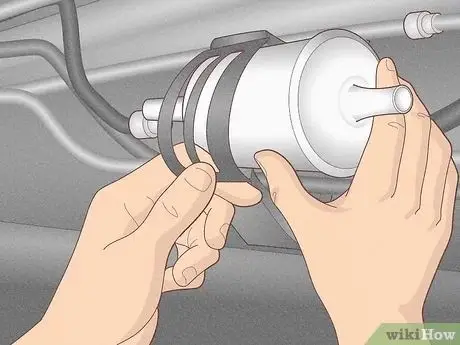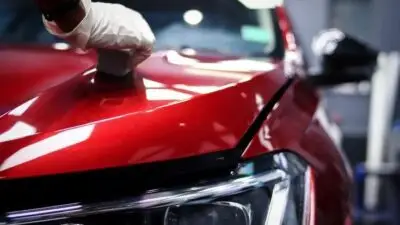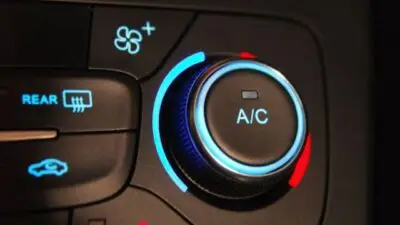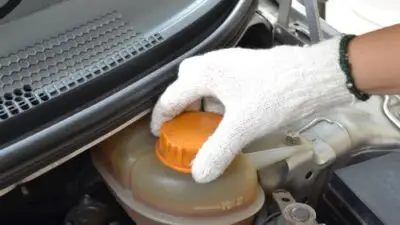Your car’s fuel filter keeps dirt and debris from reaching the engine, but it won’t last forever. Over time, contaminants build up in the filter, restricting fuel flow and potentially damaging your engine. Knowing when to replace this small but critical part can save you from expensive repairs and frustrating breakdowns.

Most vehicles need fuel filter replacement every 30,000 to 100,000 miles, though this varies significantly by make, model, and driving conditions. If you’re experiencing symptoms like difficulty starting your car, sluggish acceleration, rough idling, or engine stalling, your fuel filter might be clogged and in need of replacement. Many manufacturers have specific recommendations, so checking your owner’s manual is always a smart first step.
For older vehicles with carbureted engines, more frequent replacements around every 15,000 to 30,000 miles may be necessary. Meanwhile, many newer fuel-injected vehicles can go up to 100,000 miles before needing a new filter. Diesel engines typically require more frequent fuel filter changes due to the nature of diesel fuel and its higher potential for contamination.
Key Takeaways
- Replace fuel filters every 30,000-100,000 miles depending on your vehicle type and driving conditions.
- Warning signs like hard starting, poor acceleration, and rough idling often indicate a clogged fuel filter.
- Regular fuel filter maintenance helps prevent expensive engine damage and extends your vehicle’s lifespan.
What Is a Fuel Filter and How Does It Work?

The fuel filter is a critical component that protects your vehicle’s engine by catching contaminants before they can cause damage. It works as a barrier between your fuel tank and engine, ensuring only clean fuel reaches the combustion system.
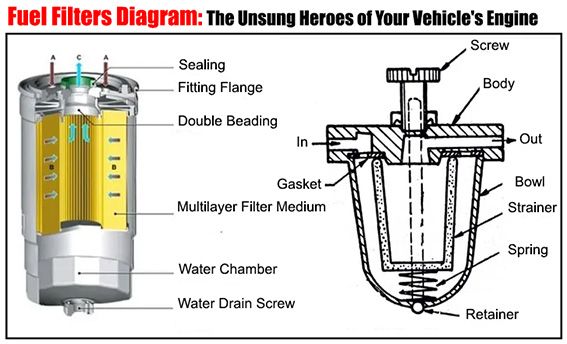
Function and Purpose
A fuel filter’s main job is to trap impurities in the filter media and prevent them from entering the fuel system. It captures dirt, rust particles, and other debris that could damage sensitive engine components like fuel injectors. By maintaining a clean flow of fuel, the filter helps ensure optimal engine performance and efficiency.
Modern fuel filters also often include a water separator function. This is particularly important because water in fuel can cause corrosion and create a breeding ground for bacteria. The water separator portion of the filter collects moisture and prevents it from reaching the engine.
Fuel filters directly impact engine longevity. Without proper filtration, contaminants could lead to clogged injectors, reduced fuel pressure, and eventual engine damage.
Types of Fuel Filters
There are several common types of fuel filters found in vehicles:
- In-line filters – Mounted along the fuel line between the tank and engine
- In-tank filters – Located inside the fuel tank, often as part of the fuel pump assembly
- Cartridge filters – Replaceable filter elements housed in a permanent casing
Many diesel vehicles employ a two-stage filtration system with a primary filter that performs initial filtration and water separation, followed by a secondary filter for finer particle removal.
Different vehicles require specific filter types based on their fuel system design. Gasoline-powered vehicles typically use simpler filters compared to diesel engines, which need more robust filtration due to diesel fuel properties.
Components and Design
Most fuel filters contain a filter media made from pleated paper, synthetic material, or wire mesh. The pleated design increases the surface area available for filtration while maintaining good fuel flow. The filter media’s pore size determines what particle sizes it can trap.
The housing around the filter media is typically made from metal or plastic and designed to withstand fuel pressure and environmental conditions. Quality filters include:
- Strong housings resistant to pressure and vibration
- High-quality seals to prevent leaks
- Precisely engineered inlet and outlet ports
Filter design has evolved significantly over time. Modern fuel filters can last longer than their predecessors, with newer vehicles sometimes featuring filters rated for up to 60,000 miles. The filter’s position in the fuel system is strategically chosen to maximize protection before fuel reaches critical components.
Why and When Should You Replace Your Fuel Filter?

Fuel filters play a critical role in engine health by trapping contaminants before they reach sensitive engine components. Knowing the right time to replace this component can prevent performance issues and costly repairs.
Recommended Fuel Filter Change Intervals
Most automotive experts suggest replacing fuel filters according to mileage-based schedules. Modern vehicles typically need a fuel filter change every 20,000 to 150,000 miles, depending on the make and model.
For older vehicles, more frequent changes around every 30,000 miles may be necessary. Some diesel truck owners follow a more conservative approach, replacing filters every 15,000 miles to ensure optimal fuel system protection.
With improvements in fuel quality and vehicle technology, many newer cars can go longer between replacements. Some manufacturers now recommend changes at 60,000 miles or higher.
Common Fuel Filter Change Intervals:
- Economy cars: 30,000-60,000 miles
- Luxury vehicles: 60,000-100,000 miles
- Diesel trucks: 15,000-30,000 miles
- High-performance vehicles: 15,000-30,000 miles
Vehicle-Specific Considerations
Different vehicles have varying fuel filter designs and locations. In many modern cars, the fuel filter is integrated into the fuel pump assembly inside the gas tank, making replacement more complex.
Diesel engines typically have more robust filtration requirements due to the nature of diesel fuel. These vehicles often have both primary and secondary fuel filters that may need different replacement schedules.
Driving conditions significantly impact filter lifespan. Vehicles operated in dusty environments or areas with lower fuel quality will need more frequent filter changes.
Pay attention to these warning signs of a failing fuel filter:
- Engine starting issues or rough idling
- Unexpected stalling
- Decreased fuel efficiency
- Engine hesitation during acceleration
- Check engine light illumination
Maintenance Manual Guidelines
The vehicle’s maintenance manual provides the most accurate information about when to change the fuel filter. Manufacturers determine these intervals based on extensive testing specific to each model.
Many modern vehicles include fuel filter replacement as part of scheduled maintenance at specific mileage points. Following these guidelines helps maintain warranty coverage and prevents premature system failures.
Some manuals list fuel filter replacement under “severe service” conditions, which may apply if you frequently drive in stop-and-go traffic, extreme temperatures, or dusty environments.
If you’ve lost your manual, most manufacturers provide digital versions online. Alternatively, ask a certified mechanic who can access technical service bulletins and manufacturer recommendations for your specific vehicle.
Signs and Symptoms of a Clogged or Failing Fuel Filter

A failing fuel filter often reveals itself through specific changes in how your vehicle operates. These warning signs typically affect engine performance, create starting problems, and sometimes produce unusual sounds or smells.
Engine Performance Issues
When a fuel filter becomes clogged, one of the first symptoms drivers notice is reduced power, especially during acceleration. Your vehicle might feel sluggish or hesitate when you press the gas pedal. This happens because the restricted filter limits fuel flow to the engine.
You may experience sudden power loss when driving uphill or carrying heavy loads. This occurs because your engine demands more fuel during these high-stress situations, but the clogged filter can’t deliver enough.
Your check engine light might illuminate on your dashboard. Modern vehicles have sensors that detect fuel pressure drops caused by restricted filters.
Poor fuel economy often results from a dirty filter. When the engine doesn’t receive proper fuel amounts, it compensates by burning more fuel, reducing your miles per gallon.
Starting and Idling Problems
Difficulty starting your car is a common sign of a failing fuel filter. When the filter is severely clogged, not enough fuel reaches the engine to start it properly. You might need multiple attempts to get the engine running.
A contaminated fuel filter can cause rough idling. Your vehicle may shake, vibrate, or the RPM needle might fluctuate while stopped at lights or in park.
Engine stalling becomes more frequent with a bad filter. Your car might suddenly shut off while driving or idling because insufficient fuel reaches the engine to keep it running.
In extreme cases, your vehicle may not start at all. When the filter is completely blocked, fuel cannot reach the engine, making ignition impossible.
Noises and Unusual Smells
A failing fuel system might produce a high-pitched whining noise from the fuel pump. When a filter clogs, the pump works harder to push fuel through, creating this distinctive sound.
Sputtering noises from the engine often indicate fuel delivery problems. These sounds typically occur during acceleration as the engine struggles to receive consistent fuel flow through the clogged filter.
Strange smells might develop from contaminated fuel that has passed through a deteriorating filter. You might notice unusual fuel odors inside or outside the vehicle.
Fuel-related smells in the exhaust can also indicate filter problems. If unburned fuel makes it to the exhaust system due to improper combustion, it produces a stronger-than-normal gasoline smell.
Factors That Influence Fuel Filter Replacement Frequency

While most manufacturers recommend changing your fuel filter every 20,000 to 30,000 miles, several key factors can either shorten or extend this interval. The actual replacement timing depends on specific conditions related to your vehicle and environment.
Driving Conditions
The environment where you drive significantly impacts how quickly your fuel filter gets clogged. Dusty roads and extreme weather conditions force your fuel filter to work harder, potentially requiring more frequent replacements.
Vehicles operating in rural areas with unpaved roads encounter more particulates that can contaminate fuel systems. These particles accumulate in the filter faster than in cleaner environments.
Stop-and-go city driving creates more stress on the fuel system compared to highway driving. This driving pattern may accelerate filter degradation due to constant pressure changes.
High-stress applications like towing, hauling heavy loads, or driving in mountainous terrain increase the workload on your vehicle’s fuel system. Filters in these vehicles typically need more frequent inspection and replacement.
Fuel Quality
The quality of fuel directly affects how long a fuel filter lasts. Lower quality fuels often contain more impurities that quickly clog filters.
Contaminated fuel from poorly maintained gas stations can introduce water, rust, and debris into your vehicle’s fuel system. These contaminants rapidly reduce filter effectiveness and engine performance.
Diesel fuel requires special consideration as it naturally contains more particulates than gasoline. Diesel engines typically have more robust filtration systems, but their filters may need more frequent changes.
Regional fuel quality variations exist based on local regulations and refining standards. Drivers in areas with lower fuel standards should consider more frequent filter replacements.
Vehicle Age and Model
Older vehicles often have less sophisticated fuel delivery systems that may be more susceptible to contamination. Their fuel filter change intervals should typically be shorter than newer models.
Modern fuel-injected engines operate under higher pressure than older carbureted engines. This increased pressure means any restriction in fuel flow can have more significant impacts on performance.
Vehicle manufacturers design specific maintenance schedules based on engine design and expected operating conditions. Always consult your owner’s manual for the recommended interval for your specific model.
Some newer vehicles have integrated fuel filters within the fuel pump assembly. These designs often have longer service intervals but may be more expensive to replace when maintenance is needed.
Fuel Filter Replacement in Diesel and Gasoline Engines

Fuel filters have different replacement schedules depending on the engine type. Most gasoline engines can go 60,000 miles between filter changes, while diesel engines typically require more frequent maintenance due to their unique filtration needs.
Diesel Fuel Filter Differences
Diesel engines often employ a two-stage filtration system with both primary and secondary filters. These filters must handle more contaminants than gasoline systems because diesel fuel naturally contains more impurities.
Diesel fuel filters should be changed more frequently, with many mechanics recommending replacement every 15,000 miles. This schedule helps prevent fuel system damage that can be costly to repair.
Modern diesel engines have sensitive high-pressure injection systems that can be damaged by even tiny particles. The primary filter catches larger contaminants, while the secondary filter removes finer particles.
Diesel filters also typically require manual bleeding after replacement to remove air from the system. This step isn’t necessary with gasoline filters.
Water Separator Importance
Water separators are crucial components in diesel fuel systems. They remove water that would otherwise cause corrosion and microbial growth in the fuel tank.
Water in diesel fuel can lead to:
- Injector damage
- Fuel pump failure
- Reduced engine performance
- Microbial growth (“diesel bug”)
Most diesel engines include a water separator as part of the primary filter assembly. When the separator collects too much water, a warning light may appear on the dashboard.
Drivers should drain water separators regularly, especially in humid environments or when using lower-quality fuel. This task can often be performed without replacing the entire filter.
Neglecting water separator maintenance is a common cause of diesel engine fuel system failures. Regular inspection can significantly extend engine life and prevent expensive repairs.
How to Change the Fuel Filter: Step-by-Step Guide

Changing your car’s fuel filter is a straightforward maintenance task that can improve fuel efficiency and engine performance. The process typically involves locating the filter, releasing pressure from the fuel system, and carefully swapping the old filter for a new one.
Preparation and Tools Needed
Before starting a fuel filter change, gather all necessary tools and materials. You’ll need:
- New fuel filter (matching the old one)
- Socket set and wrenches
- Fuel line disconnect tools
- Clean rags or paper towels
- Safety glasses and gloves
- Container to catch spilled fuel
- Fire extinguisher (safety precaution)
Ensure the vehicle is parked on a level surface with the engine off and cool. Relieve fuel system pressure by removing the fuel pump fuse and running the engine until it stalls, or by using the pressure relief valve if available.
It’s wise to keep spare filters on hand for regular maintenance. Most vehicles need a filter replacement every 24,000 miles or two years, though this varies by manufacturer.
Removing the Old Fuel Filter
Locate the fuel filter, which is typically along the fuel line underneath the car or in the engine compartment. Some filters are secured with a bracket or mounting system.
Carefully disconnect the fuel lines from both ends of the filter. Modern vehicles often have quick-connect fittings that require special disconnect tools. Place a rag beneath the connections to catch any fuel spillage.
Remove any brackets or clamps holding the filter in place. When handling the old filter, keep it upright to minimize fuel leakage. Note the direction of fuel flow indicated by arrows on the filter housing – this is crucial for correct installation.
Remove one filter at a time if your vehicle has multiple filters to avoid confusion during replacement.
Installing the New Fuel Filter
Before installation, compare the new filter to the old one to ensure they match in size, shape, and connection types. Note the flow direction arrows on both filters – they must align the same way.
Slide the new filter into the mounting bracket, making sure it’s firmly seated. Reconnect the fuel lines to both ends of the filter, ensuring they click or snap into place securely.
If the connections use clamps, tighten them properly but avoid over-tightening which could damage the fittings. Reinstall any brackets or mounting hardware that was removed.
Once the filter is installed, restore power to the fuel pump by reinserting the fuse. Turn the ignition to “on” position without starting the engine to pressurize the system. Check for leaks around the filter connections before starting the engine.
Preventive Maintenance Tips for the Fuel System

Keeping your fuel system in top condition requires regular attention and proper handling techniques. A well-maintained fuel system improves engine performance and extends the life of critical components.
Regular Inspection Best Practices
Check your vehicle’s fuel filter replacement schedule in the maintenance manual. External filters typically need more frequent changes than in-tank filters.
Inspect fuel lines for cracks, leaks, or damage every 6 months. Replace any worn or damaged lines immediately to prevent fuel leaks and potential fire hazards.
Examine the fuel cap for proper sealing and damage. A faulty cap can cause the check engine light to illuminate and affect fuel system pressure.
While changing the fuel filter, also inspect the condition of nearby hoses and connections. Tighten any loose clamps and look for signs of fuel leakage.
Quick inspection checklist:
- Fuel filter condition
- Fuel line integrity
- Fuel cap seal
- Fuel pump operation
- Connection points and clamps
Handling Contaminated Fuel
If contaminated fuel enters your system, replace the fuel filter immediately. Contamination can quickly clog filters and damage fuel injectors.
Consider using fuel additives when filling up with questionable fuel. These products help break down contaminants and protect system components.
Never let the fuel tank run extremely low regularly. The fuel pump uses fuel for cooling, and running near empty can cause premature pump failure.
When storing vehicles for extended periods, fill the tank to prevent condensation and use a fuel stabilizer. This protects the system from moisture-related issues and fuel degradation.
If experiencing symptoms like rough idling, stalling, or difficulty starting, drain the contaminated fuel and replace both the fuel and oil filters before refilling with clean fuel.
The Role of Fuel Filters in Engine Longevity and Efficiency

Fuel filters play a crucial role in protecting your vehicle’s engine from harmful contaminants. These small but important parts sit between the fuel tank and engine, catching dirt, rust, and other particles before they can cause damage.
A clean fuel filter ensures that only pure fuel reaches your engine components. This protection is especially important for sensitive parts like fuel injectors, which can become clogged by even tiny particles.
Regular maintenance of your fuel system directly impacts engine performance. When fuel filters get dirty, your engine may not receive enough fuel, causing hesitation, reduced power, and poor fuel economy.
Enhanced engine longevity is a key benefit of properly functioning fuel filters. By preventing contaminants from reaching critical engine components, they reduce wear and extend your engine’s life.
Fuel efficiency also improves with clean filters. When your fuel system operates without restrictions, the engine receives the precise amount of fuel it needs, optimizing combustion.
Modern vehicles can typically go about 60,000 miles before needing a filter change, while older models may require replacement every 30,000 miles.
Signs that your fuel filter needs attention include:
- Engine sputtering or hesitation
- Difficulty starting
- Decreased power during acceleration
- Reduced fuel economy
Consistent fuel supply is another benefit of well-maintained filters. This promotes optimal engine performance in all driving conditions.
Frequently Asked Questions

Fuel filter replacement varies based on vehicle type, usage conditions, and manufacturer recommendations. These questions address the most common concerns vehicle owners have about maintaining this essential component.
How often should a diesel fuel filter be changed?
Diesel fuel filters typically require more frequent changes than gasoline filters due to the nature of diesel fuel. Most manufacturers recommend changing diesel fuel filters every 10,000 to 15,000 miles.
In commercial vehicles or those used for heavy-duty applications, the interval might be shorter. Some newer diesel engines with advanced filtration systems can go up to 30,000 miles between changes.
Always check your specific vehicle’s maintenance schedule as recommendations vary widely between manufacturers and models.
What signs indicate a fuel filter needs replacing in a Toyota vehicle?
Toyota vehicles may show several common symptoms when the fuel filter is clogged. You might notice decreased engine performance or difficulty starting the engine, especially after sitting overnight.
Rough idling, engine sputtering, or hesitation during acceleration are other warning signs in Toyota models. Some Toyota vehicles may also display a check engine light when fuel delivery issues occur.
Modern Toyota models equipped with direct injection systems may be particularly sensitive to fuel quality issues, making timely filter replacement crucial.
What are the common symptoms of a fuel filter problem in a Nissan?
Nissan vehicles typically display a noticeable loss of power when climbing hills or during acceleration when fuel filters become restricted. This performance issue is often the first sign Nissan owners notice.
Engine stalling at low speeds or when idling is another common symptom in Nissan models. Some Nissan vehicles may also experience difficulty starting or complete failure to start when the filter is severely clogged.
An illuminated check engine light might appear, often accompanied by diagnostic trouble codes related to fuel pressure or delivery problems.
How can you diagnose a bad fuel filter in diesel engines?
Testing fuel pressure is the most reliable method to diagnose a bad fuel filter in diesel engines. A pressure gauge connected to the fuel system can measure if pressure drops below manufacturer specifications.
Visual inspection can reveal contamination if the filter has a transparent housing or can be easily removed. Black or rusty particles in the filter indicate it needs replacement.
Listen for unusual fuel pump noises, as a restricted filter makes the pump work harder. Modern diesel engines may also store diagnostic trouble codes related to low fuel pressure that can be retrieved with a scan tool.
What is the average cost to repair or replace a clogged fuel filter?
For most passenger vehicles, fuel filter replacement costs between $50 and $175. The price varies based on filter type, vehicle make, and labor rates in your area.
Luxury vehicles and some European models may cost more, sometimes exceeding $200 for replacement. The filter itself typically costs between $15 and $70, with labor making up the remainder of the expense.
DIY replacement can save on labor costs, but some newer vehicles have filters integrated into the fuel pump assembly, which increases complexity and cost.
How frequently should one change the fuel filter to prevent issues?
For newer vehicles manufactured after 2010, filter changes every 60,000 miles are often sufficient, as modern fuel filters are designed for longer service intervals.
Older vehicles (pre-2000) generally need more frequent replacement, typically every 30,000 miles. Some manufacturers specify different intervals, ranging from 20,000 to 150,000 miles.
Driving conditions significantly impact replacement frequency. Vehicles operated in dusty environments or with poor quality fuel need more frequent filter changes regardless of mileage.
